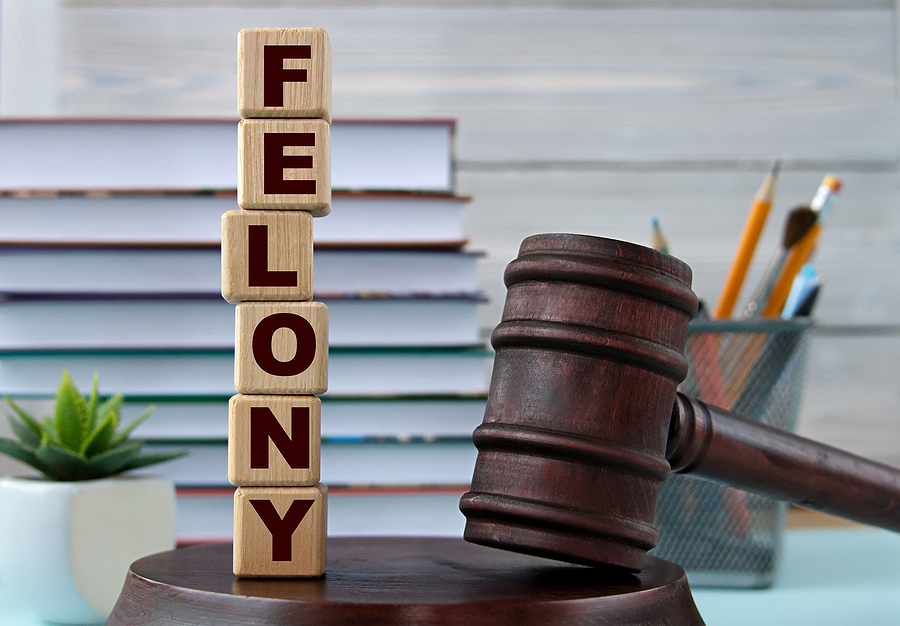In Texas, getting pulled over and charged with driving under the influence can have a ripple effect far beyond court fines and jail time. One of the most immediate and often overlooked consequences is what happens to your driver’s license. Whether you’re a first-time offender or have prior convictions, DUI laws in Texas will hit your license hard—and knowing how and when these effects occur could be the key to minimizing the damage.
This comprehensive guide breaks down the impact of DUI on a Texas driver’s license, from administrative suspensions to reinstatement requirements and everything in between. We’ll also unpack real-life examples, answer common questions, and offer strategies for navigating one of the most stressful legal events a driver can face.

What Counts as a DUI in Texas?
Not Just Alcohol—It’s About Impairment
Let’s start with the basics. In Texas, what most people refer to as DUI is legally called Driving While Intoxicated (DWI) for adults 21 and over. A DUI charge, on the other hand, specifically applies to minors under 21 caught driving with any detectable amount of alcohol.
Under DUI laws Texas, an adult is considered legally intoxicated if:
- They have a BAC of 0.08% or higher, or
- They lack normal use of mental or physical faculties due to alcohol, drugs, or both
For license-related consequences, the distinction between DUI and DWI matters less than you’d think. Either one can result in a suspension of your driver’s license, and that’s where most people start to feel the real weight of aDUI arrest.
What Happens to Your License After a DUI Arrest?
The Administrative License Revocation (ALR) Process
Many drivers are surprised to learn that license suspension can occur before you’re even convicted in court. That’s thanks to Texas’s Administrative License Revocation (ALR) program.
Here’s how it works:
- If you refuse to take a breath or blood test, your license is subject to automatic suspension
- If you fail the test (BAC of 0.08% or higher), the same applies
- Officers will confiscate your license at the scene and issue a Notice of Suspension
- You have 15 days from the arrest to request an ALR hearing to challenge the suspension
Failing to request the hearing means your license will be automatically suspended on the 40th day after the notice was served.
So when it comes to DUI laws Texas: how it affects your license, the process begins the moment you’re arrested—not the moment you’re found guilty.
License Suspension Periods for DUI Offenses
How Long Will You Be Off the Road?
The length of a driver’s license suspension after a DUI offense in Texas depends on several factors, such as whether the driver submitted to or refused testing, whether it’s a first or repeat offense, and if aggravating circumstances were present (like an accident or minor passenger). For a first DUI/DWI involving a failed test, the suspension is typically 90 days, while a refusal triggers a 180-day suspension. Second offenses can lead to suspensions of one to two years. Drivers under 21 face 60 to 180 days of suspension, and DUI-related accidents causing serious injury or death may result in suspensions ranging from 180 days to two years. These are administrative penalties and apply separately from any criminal court sentencing.
Real-Life Example: Jessica’s Unexpected License Loss
Jessica, a 22-year-old nursing student in Waco, was stopped after rolling through a stop sign. She admitted to having “a drink” earlier that evening. She failed a field sobriety test and blew a 0.09 on the breathalyzer.
Although she was a first-time offender and thought she’d just pay a fine, Jessica forgot to request an ALR hearing within 15 days. Her license was suspended for 90 days before she ever saw a judge.
This kind of story is common—and it’s why understanding how DUI laws in Texas affect your license is so important.
The ALR Hearing: Your First Line of Defense
How to Keep Your License from Being Suspended
The ALR hearing is your opportunity to fight the license suspension. It’s separate from your criminal court proceedings and is handled by the Texas Department of Public Safety (DPS).
At the hearing, your attorney can:
- Challenge the legality of the traffic stop
- Question whether the officer had probable cause
- Argue that the testing equipment was flawed
- Cross-examine the arresting officer under oath

If the hearing officer rules in your favor, you may avoid the administrative suspension altogether. And even if you lose, the hearing gives your attorney valuable insight and sworn testimony that can help your criminal defense.
When it comes to DUI laws Texas: how it affects your license, the ALR hearing is often the first and best opportunity to turn things around.
What Is an Occupational License?
How You Can Still Drive (Sometimes)
If your license is suspended, you’re not necessarily stuck taking Ubers for the next few months. Texas law allows certain drivers to apply for an Occupational Driver’s License (ODL)—a restricted license that lets you drive to essential places like work, school, or court-ordered programs.
To qualify, you must:
- Prove you have an “essential need” to drive
- Provide proof ofinsurance (SR-22)
- Possibly install an ignition interlock device (IID)
- Pay the required fees and submit to court approval
An occupational license is not guaranteed, and it typically comes with restrictions like:
- No driving outside specified hours
- Mandatory logbooks
- Limited driving routes
Still, it’s a lifeline for many Texans trying to comply with the law and stay on top of their responsibilities during a suspension period.
Ignition Interlock Devices and Driving Restrictions
Technology That Watches Every Breath
Under DUI laws in Texas, the court may order you to install an Ignition Interlock Device (IID)—especially for repeat offenders or those with a BAC above 0.15. An IID is a breathalyzer that’s installed in your vehicle. You must blow into it to start the car, and periodically while driving.
Some restrictions associated with IID orders include:
- No driving any vehicle without an IID
- Routine device calibration appointments
- Random rolling retests while driving
- Monthly data reporting to the court or probation officer
Violating these terms can result in additional penalties—or even jail time.
These devices are another way that DUI laws Texas: how it affects your license plays out in real life. They’re designed to prevent repeat offenses, but they also require strict compliance.
Consequences for Driving While Suspended
Don’t Even Think About It
Driving on a suspended license is a serious offense in Texas. If you’re caught, you may face:
- Additional license suspension
- Hefty fines up to $4,000
- Possible jail time (3 days to 6 months)
- Vehicle impoundment
- Felony charges for repeat offenders

Let’s be clear: If your license has been suspended due to a DUI or DWI, getting caught behind the wheel could turn a manageable situation into a full-blown legal disaster.
License Reinstatement After a DUI
Getting Back on the Road (Legally)
To reinstate your Texas driver’s license after a DUI-related suspension, you must:
- Complete the suspension period
- Pay reinstatement fees (usually $125)
- Submit proof of insurance (SR-22)
- Complete any court-ordered programs or probation
- Apply for license reinstatement through the Texas DPS
Even after reinstatement, some drivers may still face restrictions or monitoring. And if you’re convicted of another DUI, the penalties increase exponentially.
The impact of DUI on a Texas driver’s license doesn’t end when your suspension period is over—it’s a process of rebuilding trust with the state.
DUI Laws Texas: Impact on Commercial Drivers
CDL Holders Face Stricter Standards
For Texans with a Commercial Driver’s License (CDL), a DUI arrest can be career-ending—even for a first offense. The Federal Motor Carrier Safety Administration (FMCSA) mandates stricter rules for CDL holders.
Penalties include:
- Immediate CDL disqualification (even if driving your personal vehicle)
- A 1-year disqualification for the first offense
- Lifetime CDL revocation for a second offense
- No eligibility for an occupational CDL
If your job depends on your ability to drive commercially, a DUI conviction is far more than a personal issue—it’s a professional crisis.
Understanding DUI laws Texas: how it affects your license is critical if you drive for a living. One mistake can derail your entire career.
Real-Life Story: Jason’s CDL Nightmare
Jason was a 35-year-old truck driver from San Antonio. One night, while off-duty and driving his personal vehicle, he was pulled over and charged with DUI. Although he wasn’t transporting goods or operating his commercial truck, the DUI still led to a one-year suspension of his CDL.
Jason lost his job and struggled to find employment for over a year. Even after reinstatement, most employers were hesitant to hire a driver with a DUI on record. His story is a sobering example of how deep the consequences can run under DUI laws Texas: how it affects your license—especially for CDL holders.
Can You Expunge a DUI Suspension from Your Record?
Clearing Your Name—Sometimes
Unfortunately, DUI convictions in Texas cannot be expunged. However, if your case was dismissed, or you were found not guilty, you may be eligible for expungement or nondisclosure (record sealing).
Requirements for expungement include:
- No conviction
- No community supervision (probation)
- No other pending charges
If you’re eligible, this process can remove the arrest and license suspension from public records, which may help in job searches, housing applications, and insurance rates.
If you’re wondering how long the impact of DUI on a Texas driver’s license lasts, record sealing might be your light at the end of the tunnel—but only under the right circumstances.

Final Thoughts on DUI Laws Texas: How It Affects Your License
When you’re dealing with a DUI arrest, it’s easy to focus solely on court dates and criminal charges. But don’t overlook your license—because that’s where the longest-lasting consequences often begin.
From administrative suspensions to breathalyzer requirements and reinstatement hurdles, the impact of DUI on a Texas driver’s license can follow you for months—or even years. And for some, like commercial drivers, the fallout is permanent.
If you’re facing a DUI charge in Texas, don’t wait. Learn your rights, request your ALR hearing, talk to a lawyer, and do everything in your power to keep your license—or at least minimize the damage.
Because under DUI laws Texas, losing your license isn’t just a hassle—it can change the trajectory of your life.

